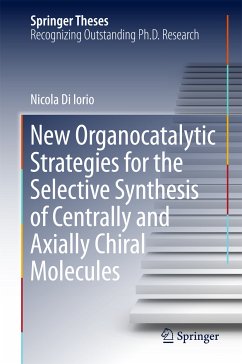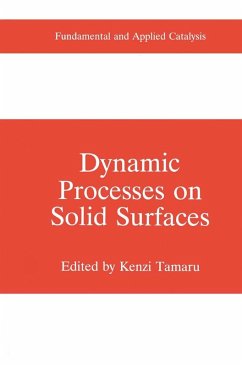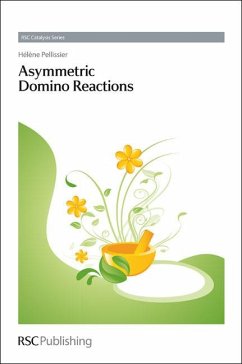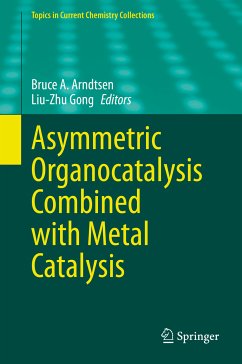
Asymmetric Autocatalysis (eBook, PDF)
The Soai Reaction
Redaktion: Soai, Kenso; Matsumoto, Arimasa; Kawasaki, Tsuneomi
Versandkostenfrei!
Sofort per Download lieferbar
162,95 €
inkl. MwSt.
Weitere Ausgaben:

PAYBACK Punkte
81 °P sammeln!
Asymmetric autocatalysis is a reaction in which chiral compound acts as a chiral catalyst for its own production. The process is a catalytic automultiplication of the chiral compound leading to an end product with a high enantiomeric excess. It has advantages over non-autocatalytic reactions because the amount of catalyst increases and no loss or deterioration of the catalyst is observed. Additionally, because the catalyst and product have the same structure, the separation of product from the catalyst is not necessary.Asymmetric Autocatalysis provides a comprehensive introduction to the topic...
Asymmetric autocatalysis is a reaction in which chiral compound acts as a chiral catalyst for its own production. The process is a catalytic automultiplication of the chiral compound leading to an end product with a high enantiomeric excess. It has advantages over non-autocatalytic reactions because the amount of catalyst increases and no loss or deterioration of the catalyst is observed. Additionally, because the catalyst and product have the same structure, the separation of product from the catalyst is not necessary.
Asymmetric Autocatalysis provides a comprehensive introduction to the topic of autocatalysis and an in-depth review of the current state of the research. Edited by a team including Professor Kenso Soai, who first described these types of reaction, and written by experts from around the world this book is a great resource for anyone with an interest in organic synthesis, catalysis and chirality.
Asymmetric Autocatalysis provides a comprehensive introduction to the topic of autocatalysis and an in-depth review of the current state of the research. Edited by a team including Professor Kenso Soai, who first described these types of reaction, and written by experts from around the world this book is a great resource for anyone with an interest in organic synthesis, catalysis and chirality.
Dieser Download kann aus rechtlichen Gründen nur mit Rechnungsadresse in A, D ausgeliefert werden.













